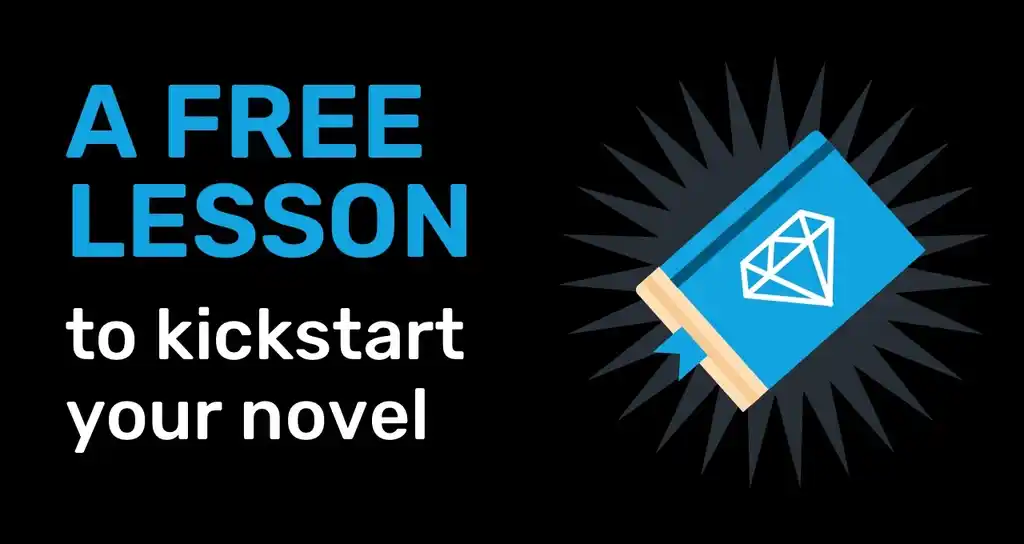In the latest Reedsy Live webinar, New York literary agent Jon Darga reviewed query letters submitted by viewers. Jon provided great, practical advice on how to write a winning query letter, giving guidance on everything from structure to comparative titles. The tips you’ll find here are all crib notes from the talk, based on Jon’s feedback.
If you would like an editing professional to help perfect your query letter, sign up for a free Reedsy account and search for editors offering query letter reviews. And if you'd like to work with Jon on your next book, drop him a request through his profile.
One thing that Jon made clear was that there are several ways to write a query letter. The format we suggest, which you can find here, is just one approach you might take — we know that it’s safe and that it works, but you don’t have to slavishly stick to it!
How to start a query letter: 3 Tips
- First paragraphs are personal — there’s no single “right way” to start your letter.
- Start with what will get you the most attention: the plot of the book, your bio, or the fact that your close friend Tom Cruise wants to turn your book into a movie.
- Agents respond well to personalized letters. They show that you’ve researched their lists and interests. If you can name authors similar to you that are on their list, that can be a nice touch.
Plot synopsis: 6 tantalizing suggestions
- The first line of your plot synopsis is the same as the first line of your book: you want it to tease, not overload. However, this doesn’t mean you should leave important information out of those first few lines. If you have to catch the agent up in the rest of the letter, it can feel like hitting rewind.
- Don’t start with a prologue. You want to start your synopsis at the last possible point of action: the event that is most important to the plot.
- Leave an agent wanting more by teasing elements in the book — don’t overwhelm them with details. Set up new information and build on what the book is going to offer — characters, obstacles, voice — but keep it short!
- Don’t think of your query letter as a synopsis. A query letter is actually more like back cover copy. If you read these copies, you’ll notice that they don’t give everything away. You want your first reader — the agent you’re trying to land — to be intrigued. Leave them on (strictly metaphorical) ellipses . . .
- Make the themes of your book implicit rather than explicitly stating what they are.
- Try to give a sense of who your characters are as individuals: What makes them distinctive? How are they feeling in the situation you’ve put them in? Just adding an adjective before a name can sometimes do the trick (“forthright Jane”), but, if you can, give some insight through their actions, even better!
A few suggestions for comparative titles
- Comparative titles (comps) are controversial, but some agents will find them really helpful. They can tell an agent where your book will sit on the shelf or who you are trying to emulate.
- Comps are especially effective when the author is a favorite of the agent or is someone they represent — so do your research!.
- Publishing professionals will usually react with skepticism if you compare your book to several huge titles, so try to find a little more nuance where you can.
- When comparing your book to a non-fiction title, find one that talks about similar issues, but tell the agent what’s different about your take, perspective or experience.
- Your comparative titles should be no older than five to ten years old. This is the method that editors in publishing houses follow when using comparative titles to get sales. Alternatively, you can use one older comp from the 90s or early 2000s, if you have two or three strong, modern comps for balance. Your aim is to demonstrate that there’s a market for your book right now.
- Describe the specific element of the comp title you are comparing to your work, e.g., “the insider’s look at the culinary world of Kitchen Confidential,” or “the culture-clash tension of Crazy Rich Asians.”
- Alongside books, you are allowed to make comparisons to TV shows, movies, stage-plays, etc. Even random things — like “the vibe of a kid’s softball game played on a rainy day” — if it’s specific and the comparison gives a strong sense of atmosphere.
Notes on author bios
- You don’t need a robust author bio to draw an agent’s attention, but it’s always a good idea to have an ‘about the author’ — even just to say what drew you to writing.
- If you can include previous works or competitions, try to give some context.
- Avoid mentioning future works or other books you’re currently working on to keep the focus on the book you’re out on submission with.
Writing style
- Be really careful of repetition. You’re writing in such a short form that repeated phrases will really stand out.
- Laundry lists usually don’t work, but they can. By rattling off a list of fun things tongue-in-cheek (“Jane finds herself juggling a class full of zombies, a headteacher with a plan for world domination, and a clueless boyfriend who won’t stop calling”), you can show that you’re prodding at the trope in a joky way and this can give a sense of tone.
- Writing your query letter in the tone of the book to give a sense of your voice and personality is a great way to grab an agent’s attention. However, you will not be dismissed for having a more formal or literary query letter: agents understand that a query letter is a strange form of its own.
- Don’t write query letters in character! They never work.
- Read the back-cover copy of whichever titles you’re comparing your book with and model your query letter off of those. If they’re a little more out of the box, then you might be okay to risk something out of the box too, but if they’re more straightlaced, then try to follow the pattern.
How to end a query letter
Jon always ends query letters in the same way: “Thank you for your time and consideration. I have the complete manuscript available upon request. I look forward to hearing from you at your earliest convenience.” It is gracious, optimistic without being pushy, and tells the agent that you know how the game works.
6 bonus tips
- Rather than saying “the first book in a ten book series,” tell the agent your book has “series potential.” This shows you are being realistic about the uncertainty of the publishing industry and assures them that your book will stand alone.
- If you’re writing a memoir that is about hardship, try to offer the agent a ‘light at the end of the tunnel’ moment. This should come near the beginning of your query letter.
- You may find it a helpful thought exercise to write a first draft of your query letter before you start writing your book to articulate and conceptualize what you are trying to accomplish with your book. Returning to a query letter is also much less intimidating than starting from scratch!
- Try to keep your query letter to a page. You can tinker around with things like spacing and font-size to get it to fit.
- Always include genre and word count. Jon usually puts these, alongside the title, after the plot synopsis and before the comp titles and author bio.
- Never send a query before you have completely finished with your manuscript!




